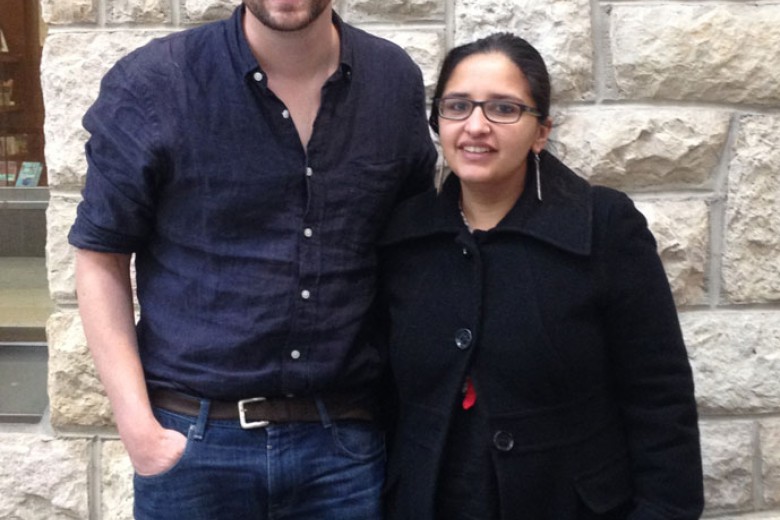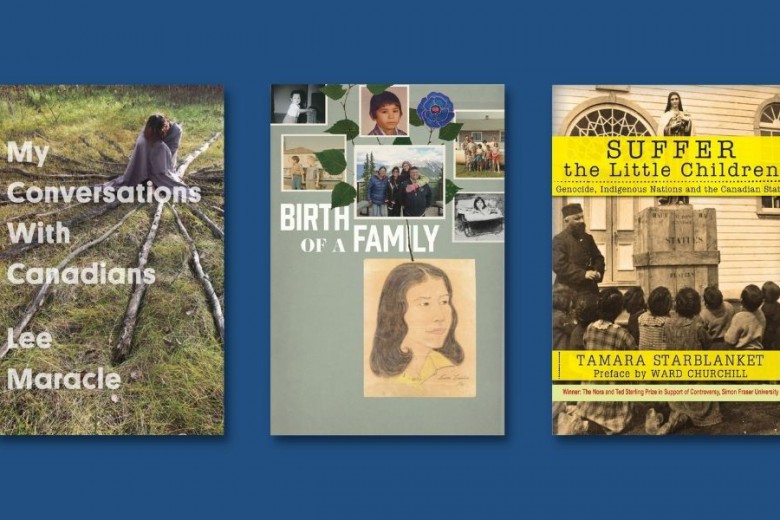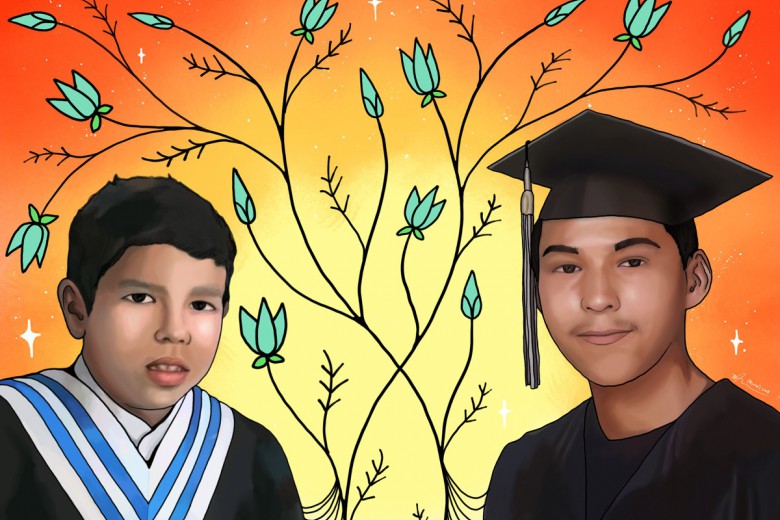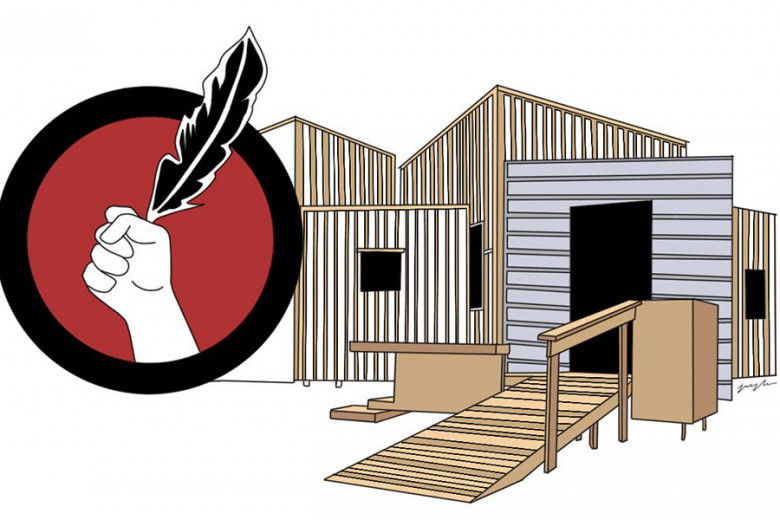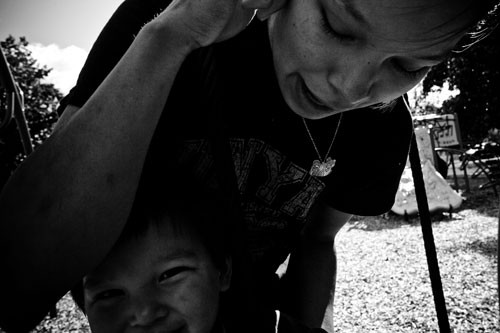
Speaking in Ottawa in 2008, Prime Minister Stephen Harper addressed a gathering of residential school survivors, extending an official apology for the policy and acknowledging the harm it caused:
“Two primary objectives of the Residential Schools system were to remove and isolate children from the influence of their homes, families, traditions and cultures, and to assimilate them into the dominant culture. These objectives were based on the assumption Aboriginal cultures and spiritual beliefs were inferior and unequal… . There is no place in Canada for the attitudes that inspired the Indian Residential School system to ever prevail again.”
At the time of Harper’s apology, there were more Indigenous children in state care than at the height of the residential school era. In British Columbia in 2010, more than half of the children in the charge of the Ministry of Children and Family Development were recognized as having Aboriginal status — a figure that appears to leave non-status Aboriginal children unaccounted for.
In the winter of 2009, Drake and Jowje were expecting their third child. An Aboriginal couple in their early twenties, Drake was working construction whenever work was available while Jowje cared for their two boys — Hunter, age three, and Toby, eight months. Lucy was born in the spring. Shortly thereafter, under the strain of failed attempts to find an adequate home for three children on one income — even in the relative affordability of Vancouver’s Downtown Eastside — Drake and Jowje opted to put Lucy and Hunter into temporary foster care.
The choice was a difficult one: while temporary care offered opportunities for visitation, it would be at least six months before they would have the option of reuniting their family under improved living conditions. The parents, with Toby, spent the next few months transitioning through a series of shelters, mouldy apartments, and the crowded homes of relatives while they continued their search for a suitable place to live. Then, when authorities found Toby in the house of a neighbour after being abandoned by a babysitter, he too was seized and placed into foster care.
A colonial legacy
“We now recognize that, in separating children from their families, we undermined the ability of many to adequately parent their own children and sowed the seeds for generations to follow, and we apologize for having done this… . as you became parents, you were powerless to protect your own children from suffering the same experience, and for this we are sorry.”
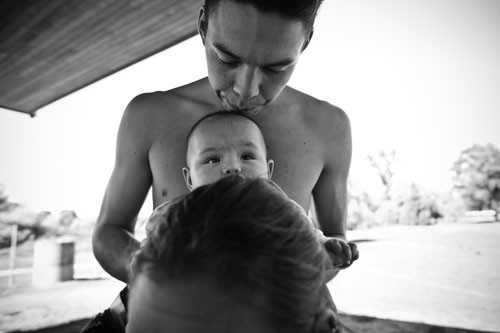
The intergenerational effects of foster care have been likened to those of residential schools as those growing up in care often lack role models and the supportive environment of community. Instead, many grow up in institutions, or worse, between institutions, bouncing between temporary homes until they age out of the system — a traumatic emancipation many are ill prepared for.
In some instances, the foster care system offers an important reprieve, a temporary support for parents attempting to get back on their feet, a stepping stone to a safe and healthy family. In far more cases, it is a violent upheaval of families, a punishment of parents and children alike for their systemic impoverishment, and a break in family bonds with lifelong consequences. Instances of abuse and neglect in care rival those cited as reasons for induction into care, and with inadequate resources (some say attention), the system is poorly policed. Drake is reticent to speak about his experiences in foster care before coming of age. “It wasn’t the best” he says, gazing at the cup of coffee warming his hands in a Hastings Street café.
Far from a holistic approach to child welfare, the foster care system fails to address the root causes of neglect that lead to apprehension, favouring the removal of children to the implementation of measures to support families. At the opposite end of the system, the lack of support for foster caregivers is belied by the demand for third-party life skills classes for youth in care. Support is also lacking for parents of children in voluntary care, and the system of visitation, while considered a privilege, is evidence of a lack of insight and flexibility into the needs of those it should serve. Drake and Jowje are allowed to see their children twice a week between 10 a.m. to 3 p.m., making it nearly impossible to maintain both a stable working life and the thinning bonds of family.
Despite Harper’s official reproach of the devaluation of Aboriginal traditions during the era of residential schools, decisions over what constitute sound parenting practices are still being made largely along lines of class and culture. The overwhelming majority of Aboriginal foster children end up in non-Aboriginal households.
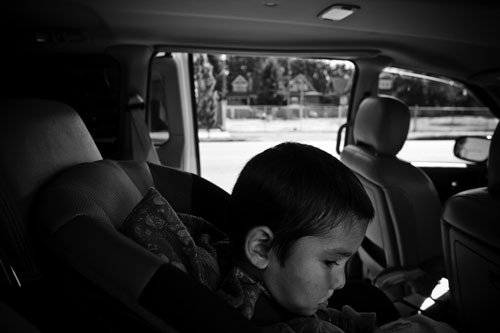
Hope for reunification
Unlike many parents in their position, Drake and Jowje still have the possibility of reuniting their family, and not just during afternoons spent in parks and on seawalls for lack of a home for visitations. Their reunification hinges on securing suitable housing, and securing housing hinges on navigating B.C. Housing and the social work bureaucracy. Countless case reviews and move-in date promises made by B.C. Housing have taken a toll on Hunter, who is just beginning to understand the timelines his parents are being asked to believe, and are understandably eager to share with their children.
“He’s starting to get frustrated because we’re telling him that we’re going to be moving into a house and that we’ll be getting them back soon” says Drake. “We keep telling him we’re going to get a place soon, by this day, and then when that day comes … we don’t have a house.”
While Drake and Jowje continue to build a supportive environment in the absence of their children, the possibility of reuniting their family is thinning as, in time, even those children in voluntary care are absorbed permanently by the ministry. To regain their children, these parents must now race one ministerial silo against another, and both against the cognitive development of their young family. It is a race in which the stakes are high and the handicap is one of class and culture.
Please note that all names have been changed at the request of the family.


